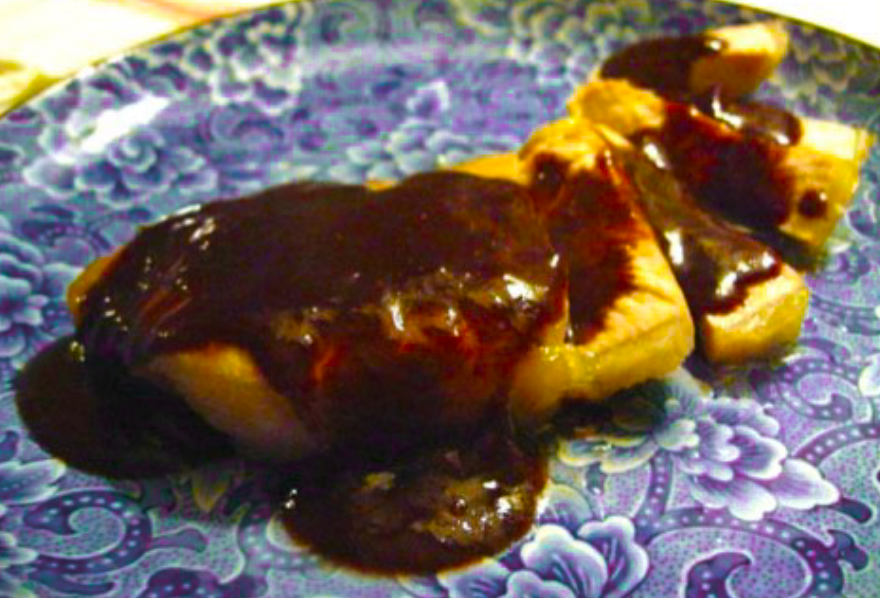
 Click on the image, above to submit to Pinterest.
Click on the image, above to submit to Pinterest.
Porcellum Flaccianum (Suckling Pig a la Flaccus)
Porcellum Flaccianum (Suckling Pig) is a traditional Ancient Roman recipe for a dish of roast suckling pig served with a richly-spiced sauce. The full recipe is presented here and I hope you enjoy this classic Ancient Roman version of: Porcellum Flaccianum.
prep time
20 minutes
cook time
320 minutes
Total Time:
340 minutes
Serves:
8-10
Rating: 
Tags : Sauce RecipesPork RecipesAncient Roman Recipes
Original Recipe
Porcellum Flaccianum: porcellum ornas in modum apri, sale asperges et in furnum mittes. dum coquitur, adicies in mortarium piper, ligusticum, careum, apii semen, laseris radicem, rutam viridem, fricabis, suffundes liquamen, vino et passo temperabis. in caccabo cum olei modico ferveat. amulo obligas. porcellum coctum ab ossibus tanges, apii semen teres ita ut fiat pulvis, asperges et inferes.
Translation
The pig is garnished like wild boar... Sprinkle with salt, place in the oven. While being done put in the mortar pepper, lovage, caraway, celery seed, laser root, green rue, and crush it, moisten with broth, wine and raisin wine to taste, put this in a sauce pan, adding a little oil, heat, bind with roux. The roast pig, free from bones, sprinkle with powdered celery seed and serve.
Method:
Clean the pig, sprinkle with salt and roast at 180°C (350°F/Gas Mark 4) for 55 minutes per kg plus 50 minutes.
While the pig is cooking grind the herbs and spices together in a pestle and mortar. Add the asafoetida essence and the liquamen to this, mixing it in well. Then blend in the wine and the passum. Place this sauce in a pan and bring to the boil. Thicken with two teaspoons of cornflour mixed with a little water. Add the juices from the pig to this sauce, bring back to the boil and simmer until thickened.
Pour the sauce over the pig and sprinkle with ground celery seeds before serving.
Find more Halloween Recipes Here.
Find more recipes from Apicius' De Re Coquinaria along with information on Apicius and his cookbook, all part of this site's Ancient Roman recipes collection.

 Click on the image, above to submit to Pinterest.
Click on the image, above to submit to Pinterest.